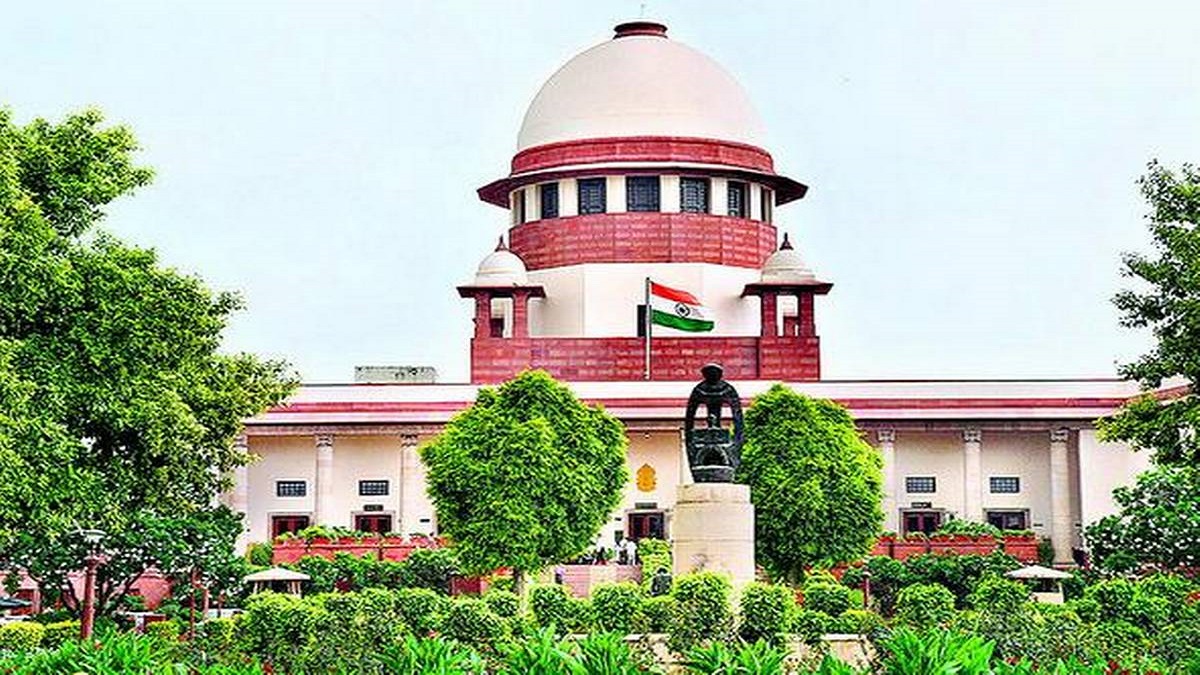
Continuity Of Service With Back Wages Can Be Directed In Cases Where The Retrenchment Was Not Bona Fide: Supreme Court
Posted Date: 12th August 2022
Relating to which Act: Industrial Disputes Act, 1947,
Type: Supreme Court Judgement
Pertains to employers and employees
Relevance of this news: Karma Management Global Consulting Solutions Pvt. Ltd is in the business of Payroll, Outsourcing, and Regulatory Compliances from its inception in 2004 and since then, has brought in a lot of efficiencies and technological upgradations with experts on its roll, to ease the hassles of Payroll Processing, Temp Staffing On-boarding, Regulatory and Payroll compliances by providing customized solutions to all its elite clients.
Karma Global is also fully into labour laws and handles all the obligations as specified under various acts and rules. In this specific instance, is the act relating to the Industrial Disputes Act which enumerates the working conditions of workers/employees as well as a layoff, retrenchment, and disciplinary proceedings.
Here the Supreme Court has given its judgment that retrenchment was not bonafide. Once the orders of retrenchment are set aside, the workmen will naturally be entitled to continuity of service with an order of back wages as determined
In the present case, the Tribunal has come to the conclusion that the entirety of business is not lost due to the strike and the retrenchment seems to have been imposed as retribution against the workmen for going on a strike. It is for this reason that the decision of this Court in the case of Parry Company (supra) will not apply to the facts of the present case.
Subject: Continuity Of Service With Back Wages Can Be Directed In Cases Where The Retrenchment Was Not Bona Fide: Supreme Court
For greater details, appended below is the complete news item
Continuity Of Service With Back Wages Can Be Directed In Cases Where The Retrenchment Was Not Bona Fide: Supreme Court
The Supreme Court observed that continuity of service can be directed in cases where the retrenchment was not bonafide.
Armed Forces Ex Officers Multi Services Cooperative Society Ltd ‘retrenched’ the services of fifty-five employees, on the grounds that it had closed its business. Retrenchment compensation as per Section 25F of the Industrial Disputes Act, 1947, was also offered. Before the Industrial Tribunal, Pune, the Government referred to the dispute regarding the demand of the workmen for reinstatement of fifty-five drivers with continuity of service and full back wages. The orders of termination were set aside by the Tribunal and the workmen were directed to be reinstated with continuity of service and 75% back wages, save eight employees who admitted to gainful employment post retrenchment. The Bombay High Court upheld this order of the Tribunal
In appeal, the Apex Court bench agreed with the view of the Tribunal that the method and manner by which the workmen were retrenched clearly demonstrates that it is virtually a closure and that the entirety of business is not lost due to the strike and the retrenchment seems to have been imposed as retribution against the workmen for going on a strike.
The court then considered the submission that the Tribunal is not justified in directing continuity of service, as in the case of retrenchment followed by reemployment, the workmen are not entitled to continuity of service. The court observed.
Even here, there is no quarrel with the principle of law that reemployment of retrenched workmen does not entitle them to claim continuity of service as held in Cement Corpn. of India Ltd. v. Presiding Officer Industrial Tribunal-cum-Labour Court and Anr. , as well as the Maruti Udyog Ltd v. Ram Lal and Ors. However, the principle laid down in these judgments will only apply to cases where the retrenchment is bonafide. The Tribunal has held that the retrenchment of all the drivers followed by an offer of re-employment on new terms and conditions is not bona fide. Once the orders of retrenchment are set aside, the workmen will naturally be entitled to continuity of service with an order of back wages as determined by a Tribunal or a Court of law.
Regarding the submission that the management has a right to organize its business based on economic considerations, the court observed:
There is also no quarrel with the principle of Parry & Co. Ltd. v. P.C. Pal, which laid down the proposition that a bonafide policy decision for re-organizing the business based on economic considerations is within an enterprise’s proprietary decision and retrenchment in this context must be accepted as an inevitable consequence. The answer is here itself and pertains to the material requirement of bonafide of the decision. In the present case, the Tribunal has come to the conclusion that the entirety of business is not lost due to the strike and the retrenchment seems to have been imposed as retribution against the workmen for going on a strike. It is for this reason that the decision of this Court in the case of Parry Company (supra) will not apply to the facts of the present case.
While dismissing the appeal, the court also refused to interfere with the direction of the Tribunal to award 75% back wages.
